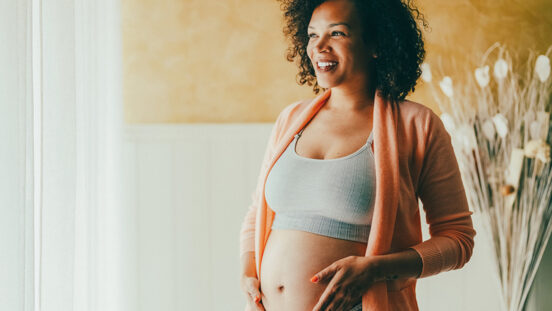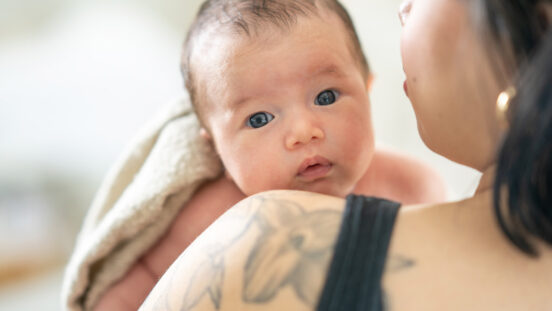14 weeks pregnant: Shop for maternity wear

Experience the magic of the second trimester! Learn how your baby’s development is impacting your body while 14 weeks pregnant.
Navigating through 14 weeks pregnant? Get insights on your baby’s development, the easing of early pregnancy symptoms, and tips for this stage.
Can’t hide your bump any more? Embrace it! Style your bump… plus, what else to expect this week.
Your body at 14 weeks pregnant
Your uterus is now the size of a large grapefruit. During your pregnancy it will increase 20 times in weight and its dimensions will stretch from 3cm long to 38cm. Your heart has to work 20 per cent harder to cope with the extra volume of blood in your body.
Changes to your body at 14 weeks pregnant
When you look at your body, the incredible changes that are taking place are clearly visible: your breasts are much more prominent than usual, and your waist is disappearing fast. Standing sideways, you’ll see that your bump is protruding nicely. Your clothes may be bursting at the seams: perhaps it’s time to invest in some maternity clothes to see your body through the next six months. Remember, the earlier you buy them, the more wear you’ll get out of them!

Nose bleeds during pregnancy
Generally worse first thing in the morning, nosebleeds during pregnancy are caused by your increased blood supply leaking from small blood vessels. Don’t attempt to blow the blood out – you could need a whole box of tissues to soak it up. Instead, mop gently, and then pinch the sides of your nose together just below the bony part to stem the flow.

Your baby at 14 weeks pregnant
Your growing baby is now three months old and is about the size of your fist. She measures 8cm long from crown to rump and weighs about 28g. Her ears have moved from her lengthening neck to the sides of the head and her eyes, which were on her jaw line, are now on the front of the head. Her vocal chords are forming.
Your baby’s movements at 14 weeks pregnant
At this stage, you won’t notice how your baby reacts to your movements, but every breath you take and every move you make rocks her. Dance for joy and your baby will sway gently; run for a bus and she will be cradled safely in the amniotic fluid that supports her body. Because your baby doesn’t yet have a ‘body clock’ and can’t distinguish between light and dark (her eyelids are still tightly fused together), her movements differ little during morning, noon and night.




